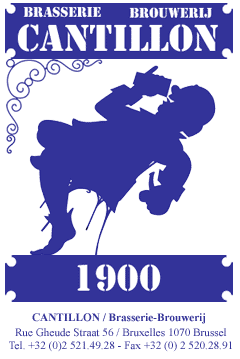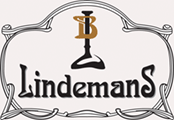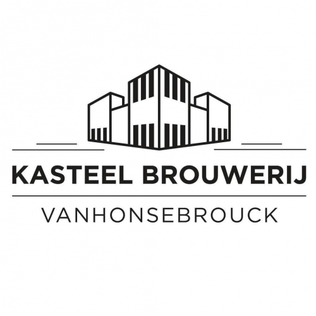
Wheat unfiltered beer is a top-fermented beer which is brewed with a large proportion of wheat relative to the amount of malted barley. The two main varieties are German Weizenbier and Belgian witbier; other types include Lambic, Berliner Weisse, and Gose.

Lambic is a type of beer brewed in the Pajottenland region of Belgium southwest of Brussels and in Brussels itself since the 13th century. Types of lambic beers include gueuze, kriek lambic, and framboise. Lambic differs from most other beers in that it is fermented through exposure to wild yeasts and bacteria native to the Zenne valley, as opposed to exposure to carefully cultivated strains of brewer's yeast. This process gives the beer its distinctive flavour: dry, vinous, and cidery, often with a tart aftertaste.

Duvel Moortgat Brewery is a Flemish family-controlled brewery founded in 1871 in Antwerp Province, Belgium. Its strong golden pale ale, Duvel, is exported to more than forty countries. Duvel is Brabantian, Ghent and Antwerp dialect for devil, the standard Dutch word being duivel. Other popular beers include Maredsous and Vedett.

Brasserie-Brouwerij Cantillon is a small Belgian traditional family brewery based in Anderlecht, Brussels. Cantillon was founded in 1900 and brews exclusively lambic beers.

Westmalle Brewery is a Trappist brewery in the Westmalle Abbey, Belgium. It produces three beers, designated as Trappist beer by the International Trappist Association. Westmalle Tripel is credited with being the first golden strong pale ale to use the term Tripel.

Beer in Belgium includes pale ales, lambics, Flemish red ales, sour brown ales, strong ales and stouts. In 2018, there were 304 breweries in Belgium, including international companies, such as AB InBev, and traditional breweries, such as Trappist monasteries. On average, Belgians drink 68 litres of beer each year, down from around 200 each year in 1900. Most beers are bought or served in bottles, rather than cans, and almost every beer has its own branded, sometimes uniquely shaped, glass. In 2016, UNESCO inscribed Belgian beer culture on their list of the intangible cultural heritage of humanity.

Palm Breweries is a brewery company. It owns several different Belgian breweries. Total production was 1,700,000 hl of beer in 2004. The brewery was a member of the Belgian Family Brewers society until 2016.

De Koningshoeven Brewery (Brouwerij de Koningshoeven) is a Dutch Trappist brewery founded in 1884 within the walls of Koningshoeven Abbey in Berkel-Enschot (near Tilburg).

Beer in the Netherlands mostly comprises pale lagers like Heineken and Grolsch. Heineken is the world's second-largest brewer.

Lindemans Brewery is a Belgian family brewery based in Vlezenbeek, a small town in Flemish Brabant, southwestern Brussels. It produces lambics, a style of Belgian ale that uses raw wheat and wild yeast.
The High Council for Artisanal Lambic Beers is a non-profit organisation that brings together the gueuze brewers and blenders of the Pajottenland and Zenne Valley in Belgium.

De Struise Brouwers is a microbrewery located in Oostvleteren, Belgium.
Brouwerij De Molen is a small brewery, distillery and restaurant in Bodegraven, the Netherlands. The brewery, whose name means The Mill, is in a windmill called De Arkduif, built in 1697. The premises also include the brewery taproom and a retail beer store offering European and American craft beers, as well as regional products such as farm cheese.
Hoegaarden Brewery is a brewery in Hoegaarden, Belgium, and the producer of a witbier, which is different from a wheat beer. Hoegaarden de-emphasizes hops, and is unfiltered, giving it the hazy, or milky, appearance--which makes it a wit (white) beer.

Huyghe Brewery is a brewery founded in 1906 by Leon Huyghe in the city of Melle in East Flanders, Belgium. Its flagship beer is Delirium Tremens, a golden ale.
Vanberg & DeWulf was an American importation business that brought premium Belgian beer to the United States. Its portfolio was purchased by Total Beverage Solution.

Van Honsebrouck is a Belgian brewery in Ingelmunster, Belgium. Founded in 1865 as Sint-Jozef Brewery, it was renamed to Brewery Van Honsebrouck in 1953. It is one of two breweries outside of Pajottenland to produce lambic beer.

Brasserie de la Senne is a brewery in Brussels, Belgium, named for the river Senne which flows through the city.
An de Ryck is a Belgian brewster and the first woman brewing engineer in Belgium in the modern age. She is the granddaughter of Gustaaf de Ryck, the founder of De Ryck Brewery. During her time as brewmaster at the firm, they have won best Belgian tripel at the 2008 and 2013 European Beer Star, and the bronze medal from the World Beer Cup, in both 2006 and 2008.

A barrel-aged beer is a beer that has been aged for a period of time in a wooden barrel. Typically, these barrels once housed bourbon, whisky, wine, or, to a lesser extent, brandy, sherry, or port. There is a particular tradition of barrel ageing beer in Belgium, notably of lambic beers. The first bourbon barrel-aged beers were produced in the United States in the early 1990s.

















